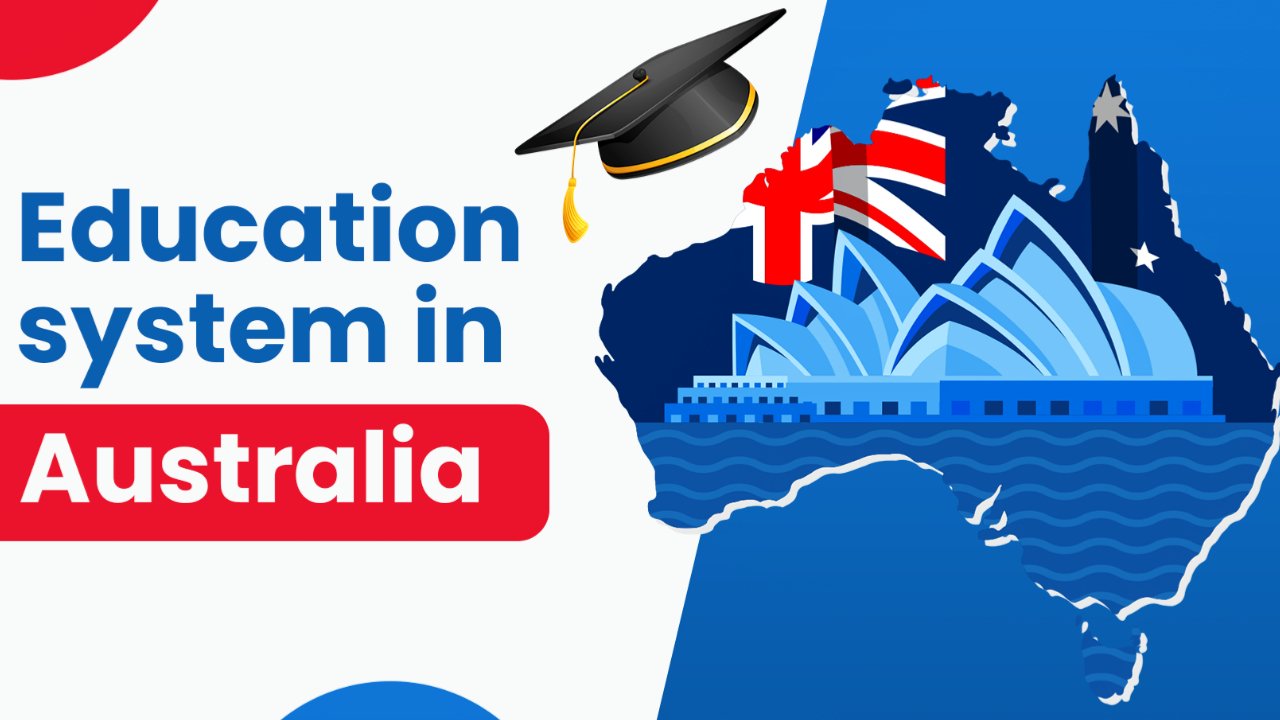Study in Australia. Australia has emerged as one of the most sought-after destinations for international students, offering a multitude of compelling reasons to choose its educational institutions. Renowned for their high academic standards, Australian universities and colleges consistently rank among the world’s top educational bodies. The Australian education system is designed to encourage critical thinking, creativity, and innovation, which equips students with the essential skills required in today’s competitive job market. Furthermore, numerous courses are available across a diverse range of disciplines, making it easier for students to find programs that align with their interests and career aspirations.
A significant advantage of studying in Australia is the exposure to a vibrant multicultural environment. With a student population hailing from various parts of the globe, international students have the opportunity to engage with different cultures, broaden their perspectives, and develop valuable global networks. This enriching cultural experience contributes to the holistic development of students, preparing them for global citizenship and professional success.
Safety is another crucial factor that renders Australia an attractive choice for study. The country is recognized for its low crime rates, political stability, and a reliable healthcare system, providing international students with a secure environment to pursue their academic goals. Additionally, Australia’s welcoming attitude towards international students fosters a sense of belonging and inclusion, enabling individuals to feel more comfortable as they adapt to their new surroundings.
Moreover, degrees obtained from Australian institutions carry significant weight in the global job market. The qualifications are globally recognized, enabling graduates to pursue career opportunities not just in Australia, but across the world. This aspect, combined with the country’s commitment to quality education and the personal growth opportunities available, makes Australia a top destination for students embarking on their academic journeys.
Understanding the Australian Education System

The Australian education system is characterized by its diversity and quality, catering to students across various levels of study. Education in Australia is divided into three primary sectors: primary education, secondary education, and tertiary education. Each of these sectors plays a crucial role in shaping a student’s academic journey and future opportunities.
Primary education typically begins at the age of five, covering the first seven years of schooling. This foundational phase focuses on developing essential skills in literacy and numeracy, which are vital for future academic pursuits. Following primary education, students enter secondary education, which is divided into two stages: junior secondary (years 8 to 10) and senior secondary (years 11 and 12). Upon completion of secondary education, students are awarded the Senior Secondary Certificate of Education, enabling them to pursue higher education or vocational training.
Tertiary education in Australia is primarily delivered through universities and TAFE (Technical and Further Education) colleges. Universities offer a broad range of undergraduate and postgraduate programs, encompassing academic, professional, and research-oriented fields. These institutions are known for their comprehensive curriculum and access to cutting-edge resources. In contrast, TAFE colleges provide vocational education and training, focusing on practical skills and competencies tailored to specific industries. Their programs often lead to diplomas and certificates, equipping students with the qualifications necessary for the workforce.
Additionally, private training organizations also contribute to the educational landscape, offering specialized training in various sectors. These institutions may provide alternative pathways to study, generally focusing on niche areas that meet industry demand. Overall, the Australian education system is designed to foster a well-rounded understanding of both theoretical concepts and practical skills, ensuring that students are adequately prepared for their careers and personal development.
Visa Requirements and Application Process
When considering the opportunity to study in Australia, understanding the visa requirements is pivotal. The primary visa for international students is the Subclass 500 Student Visa. To qualify for this visa, applicants must be enrolled in a full-time course that is registered on the Commonwealth Register of Institutions and Courses for Overseas Students (CRICOS). It is essential to have a Confirmation of Enrolment (CoE) from an eligible Australian education provider as a key component of your visa application.
The application process begins by gathering essential documentation. This includes proof of identity such as a passport, the CoE, evidence of sufficient funds to support living costs and tuition fees, and proof of English language proficiency. Financial requirements typically include demonstrating access to funds that can cover living expenses, tuition fees, and travel costs for the duration of the stay which is usually estimated at around AUD 21,041 annually for living costs alone.
Furthermore, applicants may also need to meet health insurance requirements by obtaining Overseas Student Health Cover (OSHC), which provides essential medical coverage while in Australia. It’s worth noting that students must comply with the visa conditions, which include maintaining enrollment in the course, maintaining satisfactory academic progress, and adhering to regulations regarding work rights. Generally, students on a Subclass 500 visa can work up to 40 hours per fortnight during their studies and full-time during scheduled breaks.
Common FAQs regarding the student visa include queries about extending visa durations. To extend your stay, you will need to apply for a new visa and must ensure you have adequate documentation to support your case. Understanding these requirements is crucial for a successful transition to your educational journey in Australia.
Cost of Living and Tuition Fees

Studying in Australia can be a rewarding experience, but understanding the financial implications is crucial for prospective international students. Tuition fees for international students can vary significantly depending on the chosen course and institution. On average, undergraduate programs may cost anywhere from AUD 20,000 to AUD 45,000 per year, while postgraduate courses typically range from AUD 22,000 to AUD 50,000 annually. Fields such as medicine or engineering generally command the higher end of these ranges due to the intensive nature of the studies.
In addition to tuition fees, students need to factor in living expenses, which are equally important when budgeting for their time in Australia. The cost of living can vary greatly depending on the city; for instance, cities like Sydney and Melbourne are known for their higher living costs compared to other regions. On average, international students should budget approximately AUD 20,000 to AUD 27,000 per year for living expenses. This estimate includes accommodation, food, transportation, and healthcare costs.
Accommodation is often a significant expense, with options ranging from shared apartments to university dormitories. Students can expect to pay AUD 100 to AUD 500 per week depending on the location and type of accommodation. Food costs can add another AUD 80 to AUD 200 weekly, while public transport expenses may average around AUD 30 to AUD 60 per week, depending on the distance to the university.
To manage these costs responsibly, it is advisable to create a detailed budget prior to starting studies. Exploring options for financial aid such as scholarships, grants, or part-time work can also help ease the financial burden. Many universities offer scholarships specifically for international students, which can significantly offset tuition fees. With careful planning and consideration of the financial landscape, studying in Australia can be made more accessible and sustainable.
Finding Accommodation in Australia
Finding suitable accommodation in Australia is an essential aspect of the student experience that can significantly influence academic success and social integration. Various types of accommodation options cater to diverse preferences and budgets, including on-campus housing, shared apartments, and homestays. Each option presents unique advantages and considerations that students should evaluate thoroughly.
On-campus housing is a popular choice for international students as it fosters a sense of community and provides easy access to university facilities. Living in proximity to classes, libraries, and recreational areas can enhance the overall educational experience. However, on-campus availability may be limited, and prices can vary based on location and amenities offered.
Shared apartments are another viable option, allowing students to split rent and living expenses, thereby making it a budget-friendly choice. This arrangement often promotes a social atmosphere and can lead to lifelong friendships. However, sharing living spaces requires effective communication and agreement on household responsibilities and rules.
Homestays offer a unique opportunity to immerse oneself in Australian culture while living with a host family. This option can enhance language skills and provide valuable insights into local customs. However, students must consider the level of independence they desire, as homestays often come with household guidelines that must be respected.
When searching for accommodation, it is important to consider factors such as location, access to public transport, and nearby amenities like grocery stores and entertainment options. Understanding lease agreements, tenant rights, and responsibilities is crucial to avoid potential disputes during the rental period. Students should also take note of local housing laws and regulations to ensure a smooth transition into their new homes.
Ultimately, evaluating the pros and cons of each accommodation type will help students make informed decisions that align with their preferences, financial situation, and lifestyle needs.
Cultural Experiences and Lifestyle in Australia

Australia is renowned for its vibrant multicultural society, which reflects a blend of various cultures that have shaped the nation. This diversity is manifested in numerous aspects of daily life, including language, traditions, and food. As an international student, you will find that this rich cultural landscape provides a unique environment where you can engage with different communities and broaden your understanding of global perspectives.
Local customs and traditions vary significantly across Australia’s cities and regions. In urban centers like Sydney and Melbourne, you will encounter a cosmopolitan lifestyle, filled with contemporary galleries, theaters, and festivals that celebrate the arts. Conversely, rural areas may offer a more traditional experience, emphasizing indigenous cultures and local practices. The opportunity to immerse yourself in this variety allows students to gain deeper insights into Australian identity while celebrating their own cultural heritage.
One of the most engaging opportunities for cultural exchange occurs during festivals and events. Australia hosts numerous celebrations throughout the year, including the Sydney Festival, Melbourne Food and Wine Festival, and the Brisbane Festival, which showcase local talents and culinary excellence. Additionally, many regions celebrate their indigenous heritage through events that highlight traditional music, dance, and storytelling, allowing students to learn from and appreciate the local customs.
Food is another central aspect of Australian lifestyle, characterized by a fusion of culinary influences. As a student, exploring the local cuisine is a delightful way to engage with the culture. Markets, cafes, and restaurants offer a plethora of choices, from classic Australian barbecues to a wide array of international dishes. Additionally, recreational activities are abundant, with opportunities for outdoor adventures, such as surfing, hiking, and exploring national parks, which further enrich the student experience.
By participating in local events and activities, students are encouraged to form connections with the community, contributing to a more enriching educational journey. Such interactions often lead to lasting friendships and a deeper appreciation for the Australian way of life.
Work Opportunities for International Students
International students studying in Australia have access to a diverse range of work opportunities, which can provide significant benefits beyond financial assistance. The Australian government permits international students to work part-time while they are enrolled in a course. Generally, students are allowed to work up to 40 hours per fortnight during the academic term and unlimited hours during scheduled breaks. This flexibility assists students in managing their educational pursuits while gaining valuable work experience.
The job market in Australia is dynamic, with numerous sectors actively seeking part-time employees. Among the popular areas for international student employment are hospitality, retail, and healthcare. These sectors often experience high turnover and require seasonal workers, making them suitable options for students seeking flexible, part-time opportunities. Additionally, jobs within universities, such as research assistant roles or positions in administrative departments, can also be highly beneficial as they align closely with academic environments.
To maximize job prospects, students should leverage various resources available to them. Networking is a vital strategy; attending university events, seminars, and workshops can lead to valuable connections and job referrals. Engaging with fellow students, faculty, and alumni can also provide insights into available roles and the intricacies of the job market. Furthermore, utilizing university career services can yield tailored advice and support ranging from resume writing to interview preparation, enhancing students’ employability.
As students progress through their academic programs, they may also explore post-study work opportunities. Australia offers post-study work visas, allowing graduates to remain in the country and gain additional work experience. This extension not only encourages students to immerse themselves in the Australian workforce but also aids in building their professional networks, a crucial aspect for career advancement in any field.
Health Services and Insurance for Students

For international students in Australia, securing adequate health insurance is a critical aspect of ensuring a safe and healthy study experience. The Australian government mandates that international students obtain Overseas Student Health Cover (OSHC) as a prerequisite for obtaining a student visa. OSHC provides essential health insurance services, covering a variety of medical expenses including doctor visits, hospital stays, and some prescription medications.
Health services in Australia are generally of a high standard, and students will find access to healthcare relatively straightforward. Students with OSHC are encouraged to familiarize themselves with the terms of their coverage, including any exclusions and limitations. It is advisable to choose a health insurance provider that is recognized by the government and offers comprehensive coverage within the network of healthcare providers. This not only ensures compliance with visa regulations but also safeguards against unexpected medical costs.
In addition to basic health services provided through OSHC, universities in Australia typically offer on-campus health centers that are accessible to international students. These centers provide a wide range of services, including general medical consultations, vaccinations, sexual health services, and health education. Many institutions are also committed to supporting the mental health of their students, offering counseling services, workshops, and resources aimed at promoting well-being.
Accessing mental health resources is particularly important for students who may experience challenges related to cultural adjustment, academic pressure, or personal issues. Universities often facilitate connections to support networks that can provide guidance and assistance. In conclusion, understanding the healthcare system and securing the necessary health insurance coverage is an essential step for international students, ensuring that they can focus on their academic pursuits while maintaining their health and well-being.
Tips for a Successful Study Experience in Australia
For students considering a study program in Australia, understanding how to navigate the academic and social landscape is essential for a rewarding experience. First and foremost, acclimatizing to the educational styles and expectations in Australia is crucial. Australian institutions emphasize independent learning, critical thinking, and the ability to work collaboratively. Students should familiarize themselves with these approaches to harness their full potential within the classroom.
Building a social network is equally important when studying abroad. Engaging with fellow students can enhance academic life and alleviate feelings of isolation. Students should consider joining clubs, societies, or groups related to their interests. Universities often host orientation events, which are excellent opportunities to meet peers and form connections. Additionally, using social media platforms can help students find and participate in local events or gatherings, further enriching their social experience.
Managing time effectively is vital for balancing academic responsibilities and leisure activities. Students should create a structured schedule that allocates sufficient time for study, assignments, and exams while also allowing for relaxation and socializing. Utilizing time management tools or apps can prove beneficial in maintaining this balance. Setting realistic goals and breaking tasks into manageable chunks can help in effectively handling workloads without becoming overwhelmed.
To maximize the experience of studying in Australia, students are encouraged to explore the local culture and environment. Traveling to nearby cities, participating in community events, or simply enjoying the natural beauty of Australia can provide invaluable life experiences. Many current and past international students report that embracing both their studies and the Australian lifestyle made their time abroad incredibly fulfilling.
By adapting to the academic environment, building a strong social network, effectively managing time, and embracing local experiences, students can create a successful study experience in Australia. This not only enhances their academic journey but also contributes to personal growth and memorable experiences during their time abroad.
Conclusion
Studying in Australia offers an enriching experience that combines high-quality education with vibrant cultural diversity and stunning natural beauty. With world-renowned universities and a wide range of courses, international students have access to excellent academic resources and opportunities for personal growth.
If you have any questions or concerns about our Article, please reach out to our support team. We’re here to help you!









I do not even know how I ended up here, but I thought this post was great. I do not know who you are but certainly you are going to a famous blogger if you aren’t already 😉 Cheers!